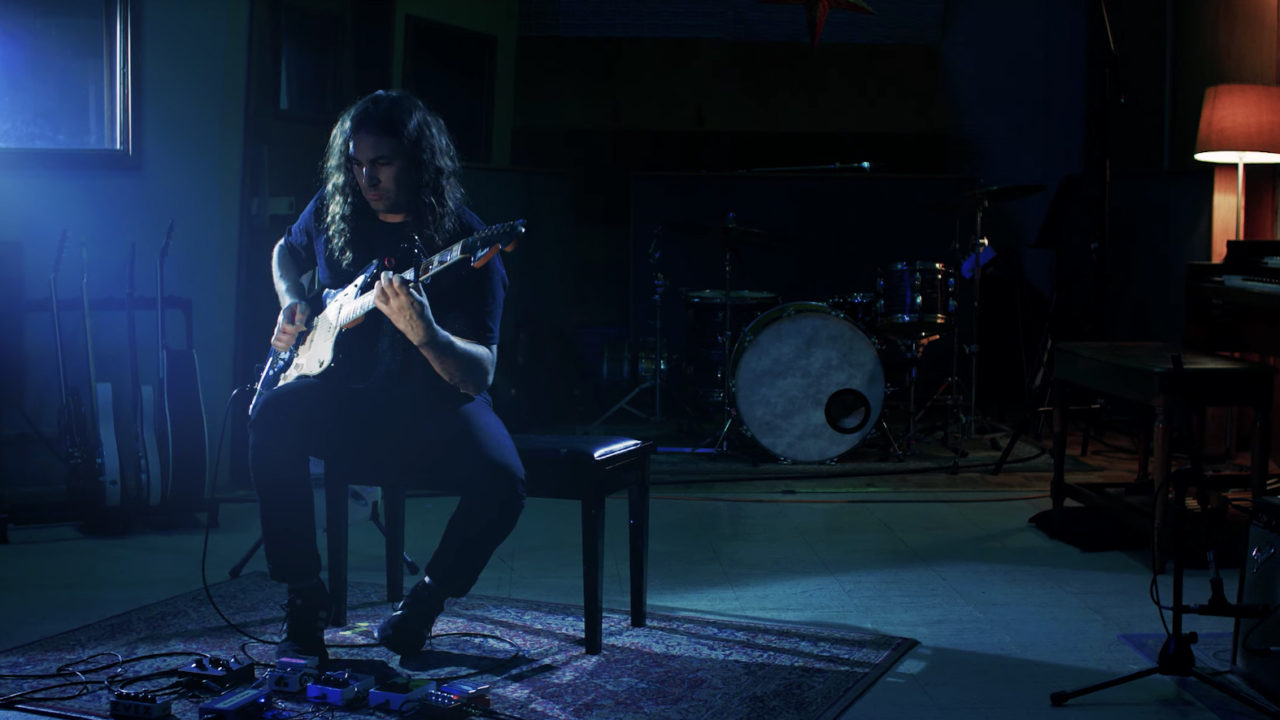Ernie Ball String Theory is a web series that explores the sonic origins of some of music’s most innovative guitar players. In this episode, Adam Granduciel of The War on Drugs discusses the origins of his relationship with the guitar, the band’s record making approach, and more. Find out the top six things we learned –
1) Initially, he just wanted to play.. And then play some more. (1:30)
The first time I ever played an electric guitar, I knew I needed one. I needed to feel that feeling again… I didn’t know if I wanted to write songs or get into recording… I just knew I wanted to play the guitar again. I didn’t have really an interest in doing much beyond just playing guitar for the first maybe 7 or 8 years that I played. I got a guitar, and I was just obsessed with playing it, and learning how to play, and just playing for myself and listening to music all the time.
2) Forming a band wasn’t the mission. (3:40)
When I got my first digital 8 track when I was 20, that’s kind of when I started writing… putting some ideas down and playing over those ideas… I never played guitar so I could be in a band… My love and interest of the guitar just kept evolving over time… Eventually I got more into writing and recording and having fully formed ideas. I always just want to remain inspired by the guitar because I feel like its a lifetime of possibilities.
3) Ernie Ball 11s resonated with Granduciel. (5:10)
From the beginning I have been playing Ernie Balls. I mean its a bright pink pack… I was like grab those strings. I didn’t know anything about 10s or 11s or 9s or 8s or anything… Thats just part of the learning process – getting your guitar and learning how it works… I always used 11s. I don’t even really know why. Maybe the way I play is more conducive to a thicker gauge, it just felt like the size that made the most sense… it just sounded rich.
4) Studio time ignites creativity. (7:00)
Being in the studio, with other people, has become, for me, the most exciting thing. Once I have those blueprints of a song, getting in their with my friends is great. You can’t even try to control where a song will go… usually you just put the right people together and it can go anywhere, and that’s the most exciting part.
5) The band’s process centers around reinterpreting. (9:20)
The sound that the six of us make, reinterpreting the way we make records is kind of where we’ve ended up. The goal is to try to find a way to get in the studio and maybe write and make a record together in a way that feels the most natural. You only get so many chances to be in the studio for a month with an amazing engineer and a great studio and all this cool gear, it should be a fun process… It’s your time, its your little idea, and you get to mangle it any way you want.
5) Don’t take the time to create and perform for granted. (13:15)
I want to make sure that every time you get to experience that power and that feeling – your best friends and your band – that you’re playing something on guitar that is new or feels explosive, and important. Night to night or day to day, just picking up the guitar, it’s trying to channel all the stuff you’ve loved, been influenced by, and trying to find something new in there.
Strings
The War on Drugs uses Ernie Ball Power Slinky, Earthwood Phosphor Bronze Medium Light Acoustic, Custom 11-46 strings. The band also uses Ernie Ball Volume Pedals to produce their sound.
String Theory
Check out similar String Theory films from Ernie Ball featuring artists such as Mac Demarco, Robin Finck of Nine Inch Nails, Jim Adkins of Jimmy Eat World, Dave Navarro of Jane’s Addiction, Daron Malakian of System of a Down, and Kurt Vile.


